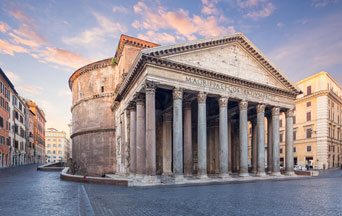
The coup d’état of December 2, 1851, turned Prince-President Louis Napoleon into Emperor Napoleon III. It also deepened the schism among Catholics and sped the formation of the liberal current headed by Bishop Felix Dupanloup of Orléans.
Once the resentments over the Falloux school law cooled, the Count de Montalembert drew closer to Louis Veuillot once again. The possibility that the two great leaders might reconcile stirred up hopes for a resurgence of the Catholic Party. On his swearing-in ceremony at the French Academy, Montalembert gave a speech of vigorously ultramontane orientation. In it, he recalled Veuillot as the head of the movement that had won so many glories in the campaign against the University system.
At first, Montalembert and Veuillot supported the second empire. Both soon recognized their error. Veuillot stuck to a distinctly Catholic position, fighting the regime’s policies that violated Church principles. For his part, Montalembert joined the liberal opposition. Once again, he broke faith with his Ultramontane past. His 1852 book, Des intérêts catholiques au dix-neuvième siècle [Catholic Interests in the Nineteenth Century], can be considered the initial milestone of Catholic liberalism in France.
Eternal and Natural Law: The Foundation of Morals and Law
By this time, l’Univers had considerable influence on Catholic opinion. Louis Veuillot had transformed it from a small paper confined to the Archdiocese of Paris into a major daily with national coverage. The paper clearly and courageously expounded Catholic principles. It defended the Church wherever error presented itself, leaving no reader indifferent. Catholics received it enthusiastically. Those who strayed from orthodoxy feared and fought it.
It was impossible to spread religious liberalism without eliminating l’Univers. All attempts to establish another major Catholic paper in Paris had failed. Archbishop Marie-Dominique-Auguste Sibour of Paris’s repeated interventions against l’Univers had little effect. Veuillot’s position in the newspaper was solid, and his enemies could no longer remove him from its management.
Bishop Dupanloup was the undisputed leader of the single front against Veuillot. He missed no opportunity to combat l’Univers. His was a systematic and organized campaign.
In 1853, Msgr. Jean-Joseph Gaume, Vicar General of the Diocese of Nevers, published a book titled Le ver rongeur des sociétés modernes [The Gnawing Worm of Modern Societies]. In it, he maintained that reading pagan classics was harmful to the formation of youth. Instead, he advocated the study of Christian classics in secondary schools, especially in the minor seminaries.
Cardinal Gousset, archbishop of Reims, supported Msgr. Gaume’s thesis. The Most Rev. Pierre-Louis Parisis, Bishop of Arras, even implemented such reforms in his diocese. However, the book provoked arguments among Catholics. Veuillot lined up among Gaume’s defenders.
Before being named Bishop of Orléans, Father Dupanloup had directed the minor seminary of Paris. He expended much effort to make it a model school. In Dupanloup’s mind, that meant serving both young men destined for the priesthood and lay students who merely wanted to study humanistic culture and philosophy. Hence, he gave the seminary’s studies a classical orientation. Ernest Renan, his pupil, affirms Bishop Dupanloup’s absolute faith in classical studies, which he considered akin to religion.
In his biography of the Bishop of Orléans, Émile Faguet shows that he felt himself targeted by Msgr. Gaume’s book because “he was the world’s leading humanist and, in the minor seminary of the diocese of Orléans, he had Philoctetes performed in Greek and Oedipus at Colona.” On the other hand, the ultramontanes were also divided in their opinions about the classics. The occasion thus seemed ripe to strike a death blow to the Univers, the long-time enemy of emerging Catholic liberalism.
 Learn All About the Prophecies of Our Lady of Good Success About Our Times
Learn All About the Prophecies of Our Lady of Good Success About Our Times
The bishop of Orléans could not miss that opportunity and spectacularly joined the debates. Msgr. Gaume’s book expounded ideas that could be discussed calmly. Unfortunately, it became the center of a fiery and passionate discussion known as the “classics’ question.” Later, Veuillot said, “If the partisans of adopting Catholic classics to teach the youth were wrong, their error was not so dangerous and seemed easily refutable with moderation.”
To close the issue, Pope Pius IX intervened with the encyclical Inter-Multiplices (1853), dealing with the various problems that agitated French Catholics. That encyclical will be discussed more fully in an upcoming installment.
Photo Credit: © phant – stock.adobe.com

